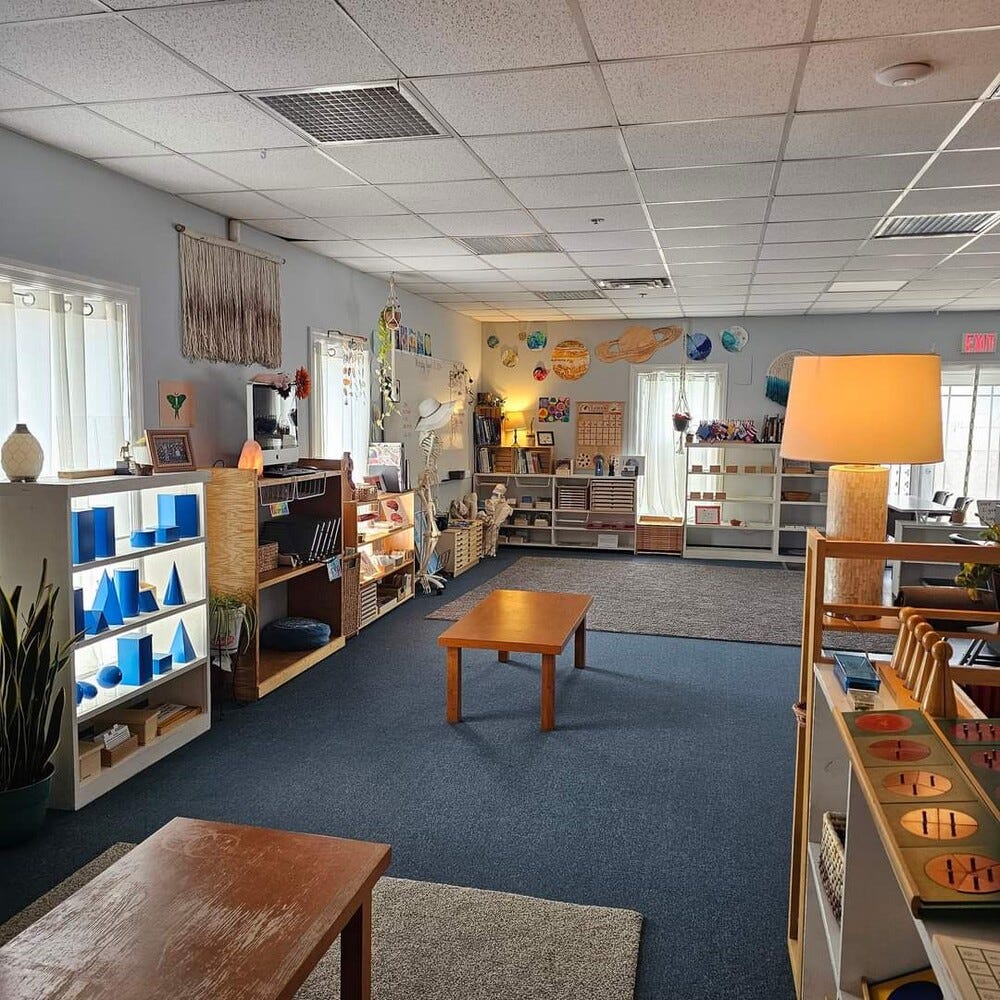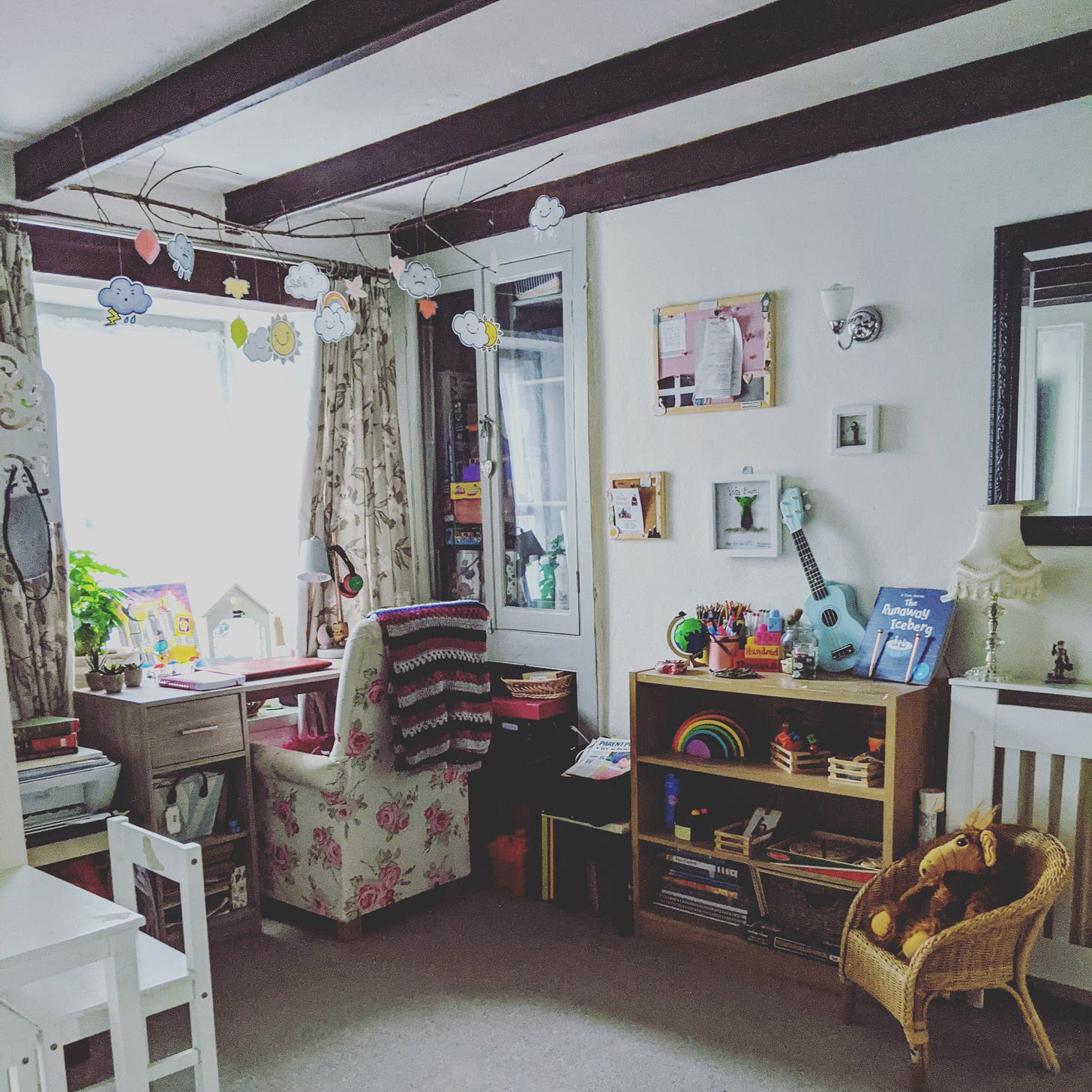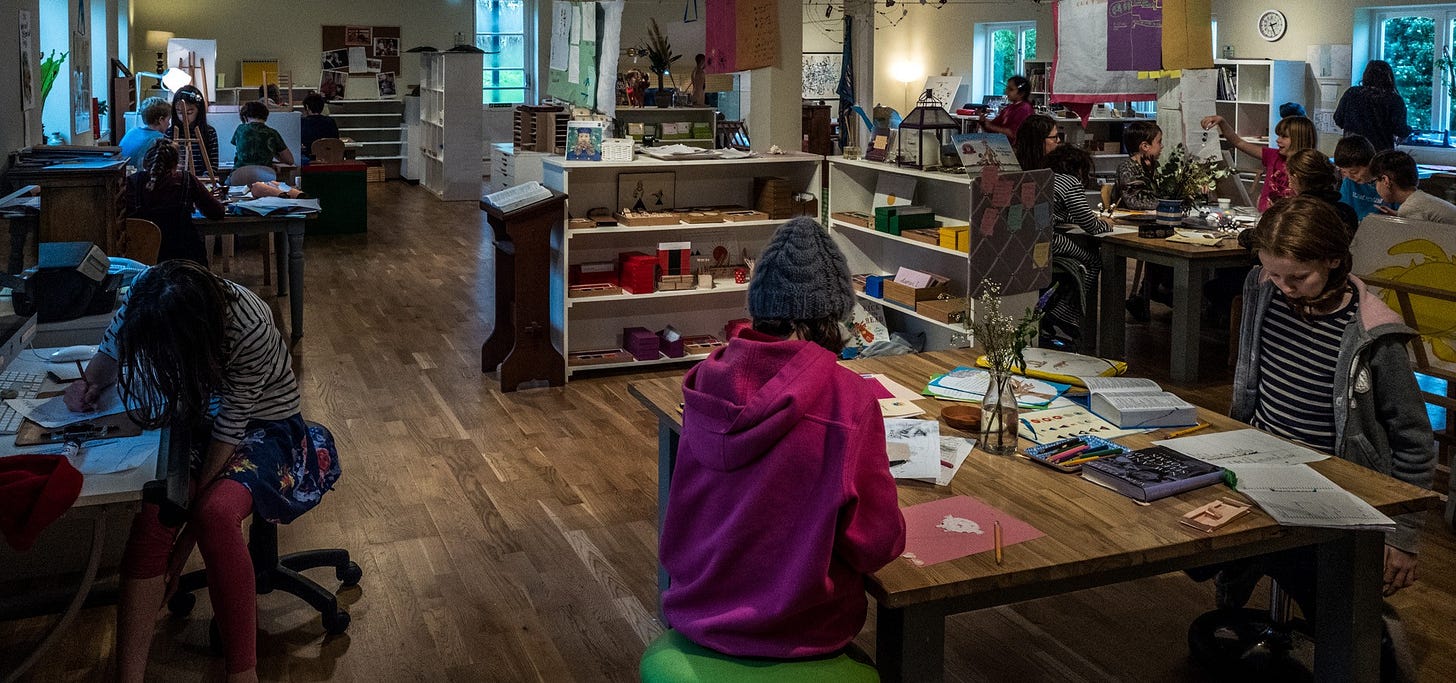Welcome! Grab a comfy seat because today we're diving into the magical realm of the Prepared Environment. Yes, it sounds fancy, but don't worry - no advanced degrees are required to understand this concept!
So what is this Prepared Environment? Imagine stepping into a space where everything is designed to make learning as natural and inviting as a cosy blanket on a chilly day. It's like walking into a well-prepared dinner party where every dish is presented beautifully, but instead of food, you have carefully curated activities that encourage independence, curiosity, and exploration. In the Montessori method, developed by Dr Maria Montessori, the Prepared Environment is meticulously designed to nurture a child's innate desire to learn. It's not just any environment; it's a space that practically sings "Explore Me!”
Instead of rows or groups of desks arranged like soldiers, we have workstations brimming with enticing materials. Think of it as a buffet for the brain! Each activity is like a delicious dish, appealing and ready to be savoured. From hands-on science experiments to art projects that unleash creativity, every resource serves a purpose, encouraging independence and exploration - like a treasure hunt, but with less "X marks the spot" and more "let's find out together"!"
But hold on to your hats - there's more! Montessori believed that children thrive best when they manage their own learning. So, in this prepared environment, students aren't just passive listeners; they are active participants. They choose what to explore, when to explore it, and with whom! It's like being in charge of your own amusement park, where the rides are educational activities that fuel engagement and curiosity.
Now let's sprinkle in a little humour here: picture a classroom where the only rule is "No one gets hurt.....and no one gets board!" That's the spirit of the Prepared Environment. It is all about making learning feel like the greatest adventure. By creating a space where children feel safe, stimulated, and free to make choices, we're not just teaching them; we're encouraging them to be agents of change in their future roles as adults.
The Magic Recipe for Independence
Let's start with a pinch of independence. Montessori classrooms are like those Choose-your-own-adventure books you loved as a kid- but for learning! Children can move around freely, choose their activities, and engage with materials at their own pace. Parents often wonder, "Will my child actually do something with all that freedom?" Spoiler alert: YES! It's amazing how kids can navigate their own interests if given just a smidge of space.
You see, in a Prepared environment, Everything is thoughtfully laid out. Instead of a chaotic jumble of toys and materials, there are beautifully organised shelves that practically sing "Pick me! Pick me!" with enticing activities like bead chains, board games, science exploration or junk modelling. When children have agency over their activities, you might see them diving into learning like they would into a pile of autumn leaves - joyfully and without hesitation!
Exploration is the Name of the Game
Next up, we can't forget about exploration! The Prepared Environment encourages kids to freely explore their surroundings. Think of it as a miniature sensory-filled theme park where every corner offers new discoveries. From tactile experiences to practical life skills (yes, even pouring cereal can be an adventure!), the world is their oyster, and they're ready to crack it open.
Now, I know what you're thinking: "How do I create a Prepared Environment at home without turning my living room into a mini classroom?" Fear not, dear reader! Start small. Designate a space for play that's filled with inviting materials that encourage hands-on activities. And here's the kicker: encourage independence! Your child doesn't need your expert supervision for every move. Trust me, they don't need to be told how to build the tallest Lego tower or practice a graceful pour of water. Let them get messy - and hey, that's how learning happens!
Diplomacy with a Dash of Humour
At this point, you might be envisioning your child using their independence and exploration skills to take over the world (or at least your living room). A forewarning: preparer for the occasional armchair fort and spontaneous art installations on your walls. Just remember, as they channel their inner Picasso, that it's all part of the learning journey- helping them gently learn skills for cleaning up mistakes is just as important as learning from them. Prototype your diplomacy skills - a little "I love your creativity, but let's not use the cat's scratching post as a canvas, okay?" makes a huge difference to both of you.
Wrapping it up with a Bow
So, there you have it! The Prepared Environment is not just a fancy phrase; it's a philosophy that helps children embrace their independence and soar into exploration. Whether you're a parent navigating playspaces, a caregiver seeking to support young learners, or an educator eager to enhance your classroom space, remember it's about laying the groundwork for curiosity and creativity.
Annotated Bibliography
Here is my annotated bibliography! It sounds like something you’d find buried in a library or hidden in the depths of a graduate student's panic folder. However, this nifty collection is actually a trove of peer-reviewed research and literature that I've carefully sifted through to bring you the insights and facts that support my writing. I have attached these to the end of my writing. This serves as a lively map of the intellectual landscape that poses as both a resource for you and a testament to the wonderous world of academia.
Davis. K. L., & Johnson, C. E. (2021). The Role of Environmental Design in Supporting Montessori Educational Practices. The Elementary School Journal. 121(1), 84-89
This study emphasises the importance of well-designed educational environments and how they influence children's autonomy and engagement in learning. The empirical findings provide support for the concept of the Prepared Environment in Montessori Education.
Elliot, S. N., & Milhalas, S. (2017). The Prepared Envrionment: An Empirical Examination of the Montessori Learning Envrionment. Montessori Life. 29(4), 14 - 20.
This study analyses the characteristics of the Montessori Prepared environment and its impact on children's independence and learning outcomes. The findings support the notion that structured environments promote autonomy and decision-making skills.
Hanna, K., & McCarthy, O. (2020). Educating for a Sustainable Future: The Montessori Approach to Learning Through Nature. International Journal of Sustainability in Higher Education, 21 (6), 1179 - 1196.
This research explores how Montessori Education's emphasis on a carefully curated environment enhances student engagement and motivation. These findings align with the principles discussed in the context of fostering a productive learning atmosphere.
Lillard, A. S & Else-Quest, N. (2006) Evaluating Montessori Education, Science, 313(5795), 1893 - 1894.
This article evaluates the effectiveness of Montessori education, with findings indicating that children in Montessori programs perform as well or better than their peers in traditional settings. Notably, the study highlights improvements in executive function and social skills nurtured by a well-prepared educational environment.
Nicolopoulou, A. (2010). The Role of Play in Child Development: Perspectives from Vygotskian and Piagetian Theories. International Journal of Play, 1(1), 57 - 73.
This study focuses on the emphasis on the importance of play and exploration in learning; it supports the idea that a Prepared environment fosters independent exploration, which is essential for cognitive development among children and young people.
Randolph, J. J., Bryson, A., Menon, L., Henderson, D. K., Manuel, A. K., Michaels, S., McPherson, W., & Lillard, A.S. (2023). Montessori Education's impact of academic and non-academic outcomes: A Systematic Review. Campbell Systematic Reviews, 19(3), e 1330.
This systematic review evaluates existing literature on Montessori education, focusing on its effects on academic and non-academic outcomes, including cognitive skills, social development, and emotional well-being. This study analyses various research to determaine the effectiveness of Montessori methods compared to traditional approaches and discusses implications for educators, policymakers, and parents regarding the benefits and challenges of Montessori Practices.
Smith, K. A., & Hwang, J. (2019). Playful Learning: A Montessori Perspective. Journal of Research in Childhood Education, 33 (4), 555 - 570.
This research examines the effects of playful learning in Montessori settings. It highlights how the Prepared Environment encourages children to actively participate in their learning processes, which, in turn, enhances their creativity and critical thinking abilities.







